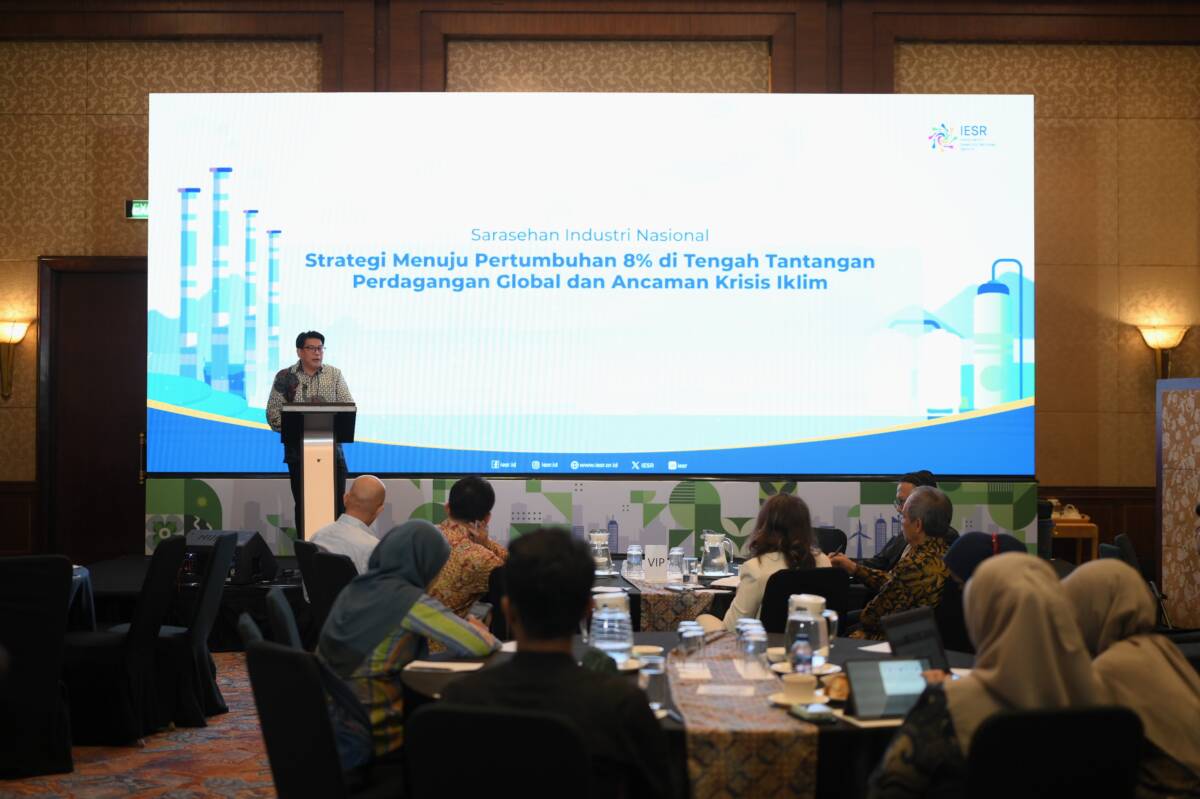Jakarta, May 26, 2025 – The Indonesian government is targeting gradual economic growth of 8% by 2029, placing the industrial sector as the main driver of this growth. However, global challenges such as protectionist policies and the climate crisis present obstacles that cannot be ignored. In response, the Institute for Essential Services Reform (IESR) held the National Industry Forum themed “Strategy Towards 8% Growth Amid Global Trade Challenges and the Climate Crisis” (5/26/2025) in Jakarta.
The event served as a cross-sector forum bringing together stakeholders from government, business, and research organizations to discuss strategies for strengthening the national industry amid ever-evolving global dynamics. The forum also provided a platform to discuss an action plan toward a resilient, competitive, and low-emission industry.
In his opening remarks, Fabby Tumiwa, Executive Director of IESR, emphasized that achieving 8% economic growth will require significantly higher growth in the industrial sector, with a targeted 30% contribution to GDP by 2029. However, he noted that Indonesia must overcome three major challenges: global protectionism, the climate crisis, and increasing sustainability pressure from international markets.
“Decarbonization is not just a trend but a necessity to ensure our industry remains relevant and accepted in global markets,” Fabby asserted. He added that Indonesia’s industry needs a new wave of high-quality and sustainable investments, including in energy efficiency, waste heat utilization, and the development of renewable energy.
Shinta Widjaja Kamdani, Chair of the Indonesian Employers Association (APINDO), highlighted global economic uncertainties and their direct impact on the industrial sector. She noted that the manufacturing sector’s contribution to Indonesia’s GDP continues to decline, while challenges such as high logistics costs and reliance on imported raw materials are undermining national competitiveness.
“We need regulatory reform and improved labor productivity to face the era of green industry,” she said.
Adie Rochmanto Pandiangan, Expert Staff to the Minister for Strengthening Domestic Industrial Capabilities, emphasized that transitioning to a low-carbon industry is part of the national strategy. The government is promoting a decarbonization roadmap and offering green industry certifications as incentives. However, he acknowledged that technological readiness and investment remain the main challenges.
Oktorialdi, Senior Planner at Bappenas, stated that low-carbon industrial development has become part of the national transformation agenda. He stressed the importance of consistent policy and inter-agency synchronization to accelerate the achievement of economic and environmental goals.
Ahmad Heri Firdaus, Researcher at the Institute for Development of Economics and Finance (INDEF), asserted that the success of industrial decarbonization depends not only on technology investment but also on strong leadership and cross-sectoral coordination. Meanwhile, Yustinus Gunawan from AKLP highlighted energy constraints and electricity costs in industrial zones as ongoing barriers to investment and green industry acceleration.
In the closing session, Juniko Nur Pratama, IESR’s Industrial Decarbonization Program Manager, stated that the forum opened a space for much-needed strategic dialogue to strengthen the direction of national industrial policy that pursues not just growth, but also sustainability.

